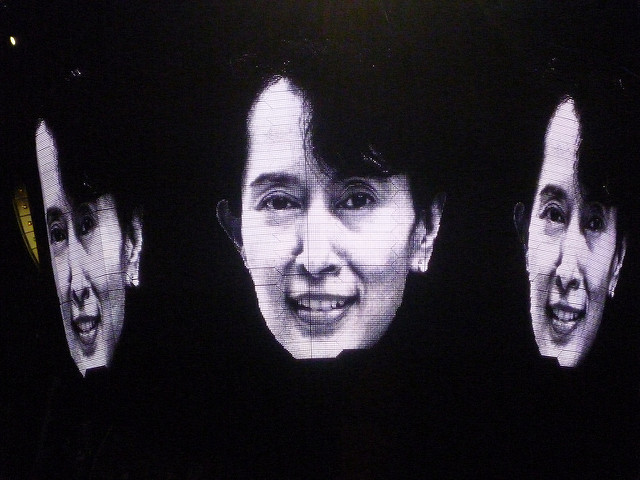
Myanmar’s transition to fully-fledged democracy is going to be a slow one. While Aung San Suu Kyi’s popular with the international community, her NLD government has a lot on its plate. Regional and international investors have their eyes on Myanmar’s resource-rich hinterland, and the easing of sanctions promises much for a population racked by decades of repression and civil war. Despite those brighter economic prospects, the NLD has made it clear that peace negotiations and ‘national reconciliation’ are a
priority.
The ‘21
st Century Panglong’ conference—drawing its name from the 1947 Panglong agreement concluded by Suu Kyi’s late father, General Aung San—looks to bring together people from Myanmar’s various ethnic groups to discuss peace and the future of the union. The conference’s scheduled for late August, but the government faces several hurdles in the lead up to negotiations.
First, the government’s and ethnic minority groups’
expectations diverge over the content of the conference. Under the 1947 agreement, the frontier areas—those on the fringes of central Myanmar with large ethnic-minority populations—were guaranteed ‘full autonomy in internal administration’ (in principle), financial autonomy, and ‘rights and privilege which are regarded as fundamental in democratic countries’.
It’s clear from meetings between various leaders of armed ethnic groups that they believe the 1947 agreement should serve as the blueprint for further negotiations. Ethnic leaders from the Kachin and Shan states met in
June, concluding that ‘because there was the 1947 Panglong, there is the Union. If we are not going to honor it, the Union will only fall apart.’ From 26–30 July, leaders from major armed ethnic groups met in
Mai Ja Yang , Kachin State to discuss a blueprint for a federated union.
On the government side, it’s less clear that actors within the establishment (read: the military) are willing to compromise on a federal union. Successful negotiations will require cooperation from the Burmese military (the
tatmadaw), who might have stepped back from the front ranks of government but remain deeply entrenched in power. Under the 2008 constitution, the military’s guaranteed the head appointments for the ministries of Defence, Home Affairs, and Border Affairs, as well as 25% of seats in the lower and upper houses of the national legislature, the Pyidaungsu Hluttaw (a share large enough to wield a veto over proposed changes to the constitution). Part of the
tatmadaw’s reluctance to consider a federal union stems from its fear that armed groups would have free reign to serve as security forces in each region, weakening the military’s power in the frontiers significantly and exposing border areas to further Chinese and Thai influence.
But it’s more than differing aspirations driving the parties apart. The NLD’s second hurdle is ongoing
tatmadaw offensives and divisions between various armed ethnic groups. While the international community sees the charismatic Aung San Suu Kyi leading Myanmar’s peace process,
offensives continue despite the signing of the Nationwide Ceasefire Agreement.
Human rights abuses are also still occurring. The military’s grip on power means holding members of the
tatmadaw accountable for their actions is a huge challenge for the NLD government.
There’s also an ongoing struggle for ethnic groups to present a united front for negotiations. Fighting continues in
northern Shan state between the Ta’ang National Liberation Army and the Shan State Army-South, and several armed groups prefer to negotiate with the NLD
bilaterally.
Lastly, the government’s reluctance to acknowledge the history of Myanmar’s various ethnic groups is a roadblock in any negotiations. After the death of Aung San and the 1962 coup, many in the military feared ethnic groups would attempt to secede and began to impose their will on the ethnic peoples of the Union. For many of Myanmar’s ethnic groups, that meant years of brutal repression and a ‘Burmanisation’ program synonymous with cultural genocide. The teaching of ethnic languages was banned and segments of the population were forcibly relocated. In a city as ethnically diverse and vibrant as Kengtung, signs of Burmanisation and
cultural suppression remain visible.
Without acknowledging the diverse history of the region and successive attempts to suppress ethnic culture, the government and ethnic groups are likely to be talking past each other come August.
Those hurdles mean that changes are going to be difficult to implement from within. Reform of the
tatmadaw and the drafting of a new constitution are both essential for real democratic change and a lasting peace. And those are areas where the international community has limited sway.
Further, a history of external support for various armed ethnic groups—including Chinese support for the United Wa State Army, who, at an estimated 20,000 plus, are Myanmar’s largest non-state armed group—means Myanmar’s neighbours wield significant influence. In order to succeed, the ‘21st Century Panglong’ conference will need their support along with that of the wider international community.
Though Myanmar has taken steps in the right direction, it’s worth remembering democratic transitions don’t happen overnight. Suu Kyi and the NLD face a military establishment well-acquainted with power and resistant to reform. The NLD can’t do everything at once. Prioritising peace is a logical first-step, but it’s also one that’s difficult to put forward without constitutional change and widespread reform. One can only hope the ‘21st Century Panglong’ lives up to its name.
 Print This Post
Print This Post